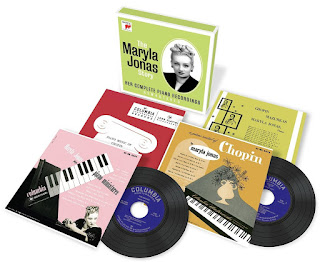Violinist Augustin Hadelich joined guest conductor Cristian Macelaru and the orchestra for the opening work on the program, Dvořák’s Violin Concerto. I’d never heard Hadelich before, either in concert or in recordings. He has a lovely, sweet tone, and moreover, one which projects to the back rows without becoming harsh – hardly an easy accomplishment at Blossom. Further, Hadelich has an absolutely secure technique that was put to the service of the music – he overcame each obstacle with ease and nailed each treacherously high note spot-on. Tempos were well chosen, rubati were expressive but never obtrusive, and the work's lyricism was meltingly conveyed. Macelaru and the orchestra provided a fine accompaniment.
A few thoughts about Dvořák’s Violin Concerto: it’s exceptionally well written for the instrument. It’s one thing to be able to create compelling musical thought – as Beethoven did in his violin concerto. It’s another thing to be able to translate that thought into musical notation which is suited for the chosen instrument – an area where Beethoven fell short but where Dvořák succeeds. Dvořák was an apt violinist himself, so the quality of the instrumental writing is no surprise. But what’s most interesting is that, despite his own skills, Dvořák sought out the advice of Joseph Joachim – the finest violinist of his day – who suggested revisions to the solo part and the orchestration, which Dvořák adopted.
The performance was warmly received and Hadelich gifted the audience with an encore that brought the shell down: Paganini’s 24th caprice, a cornucopia of violinistic virtuosity.
Holst’s The Planets, so popular it could almost be considered Crossover, followed intermission. To be honest, the chance to hear The Planets in concert was my main reason for buying tickets. But the performance was disappointing on many levels. In all the years of attending Cleveland Orchestra concerts – at Blossom, at Severance, and on the road – I’ve never heard more fluffs from the brass section (temperature may have been a factor as the evening was rather cool). The work’s fortissimo sections were not merely loud but noisy – with all that implies. Balances between sections were off throughout. The contrasts one hears in this works’ best renditions was lacking – never once did I hear the orchestra play a true pianissimo. This spoiled two movements: The Winged Messenger of Mercury was curiously heavy footed; and Neptune’s choral ending, which is supposed to be subtle enough that the audience isn’t sure if the work is over, ended with a sudden cutoff and lacked all mystery. I know the orchestra is capable of better than this, so primary blame rests with Macelaru. He should not be invited to return.

